- SINCE 2009
- Dubai Investment Park 02
- +971 4 824 0002
- [email protected]
Shed 06, Aber Warehouse
Dubai Investment Park 02,
PO Box: 414345 , Dubai.
United Arab Emirates.
Mobile: +971 50 2420957
Email: [email protected]
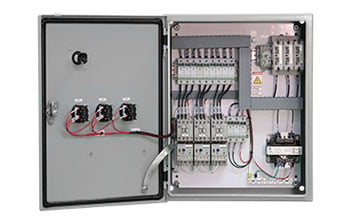
The starter control panel of our company is a precision-engineered device that is reliable, efficient and a user-friendly solution for both the homeowners and the businesses and as such, they can control the equipment easily, happy to see the confirmation message of their switch, sensor, and control that they are in the best mode and thus, the system is safe, effective, and "up" during the power emergencies. Our innovative design includes the latest technology and user-friendly interfaces that give the product easy to operate, robust durability, and peak reliability for each installation.
Not only is our starter control panel sophisticated in terms of simplicity given that the rest of the features are likewise at the top level, and this is what constitutes the perfect mix that ensures you never meet any difficulties with the system installation or daily operation. To put it in simple terms, you may not really like them because they are always so powerfully real and they keep increasing your changing needs to the point where they reach the top just right on condition that they are produced up to the required maximum efficiency and with fantastic assistance every day.
Therefore you can have the best engineering and user-friendly functionality all rolled into one with our starter control panel which is not only protection for your equipment but also a way of optimizing energy usage, lowering operational costs, and generally, the enhancement of productivity, thus it as the best for buyers who want proof about the reliability of the best product on the market for a power management need in the present day and they can depend on the expertise and customer service support to take them through the whole process.
With the sole focus of understanding your unique needs and driving custom power solutions that work best for you, we put the interest of our clients at the highest level of our mission and objectives. We cover a variety of small design and distribution companies, as well as household customers, to ensure your product is both reliable, easy, and of high quality during your interaction with us. Our solid team continues to pursue high-quality solutions for you and give them all the necessary support, thus your journey with us will be effortless, no matter where you keep your interests every day.
A Starter Control Panel is a setup that helps start, stop, and protect electric motors. It controls the electricity going to the motor and stops damage from too much power or short circuits. The controller uses different ways like electromagnetic and electrical to manage how the motor moves.
It ensures motors run and It looks after motors’ requirements such as shielding them from overheating and electrical problems It reduces the chances of equipment breaking down and stopping work To put it , it’s what keeps your motors operating and productively!
A Starter Control Panel includes a handful of crucial bits that team up to look after and manage a motor. Peep the primary stuff:
Contactor – Rolls as a switch to power the motor up and down.
Overload Relay – Guards the motor against overheating or overloading.
Circuit Breaker – Stops electrical faults and short circuits.
Push Buttons – Allow manual starting and stopping of the motor.
Indicator Lights – Display the panel’s status (ON, OFF, Fault).
Fitting & Terminals – Connect all the components .
These components prevent the engine from running , and ! efficiently!
Manual starters need someone to hit a switch or push a button to get the motor going and to shut it off. While pretty simple, this still means someone has to do it themselves. Auto starters are different—you’ve got stuff like sensors, timers, or even a remote that kickstarts the motor on their own. Talk about handy and slick if you’re using the motor a lot or on a schedule.
Kick things off by cutting the power. Suit up in protective gloves and grab those insulated tools. Double-check those wires to make sure they’re snug and right, and ground the panel good to dodge nasty shocks. Keep that panel dry, steer clear of any damp spots. After you’ve hooked it all up, run a quick test to make sure it’s all shipshape before you give it the green light.
Nope, you can’t just plug a three-phase motor into a single-phase panel. See, the thing is, three-phase motors need a special kind of juice—three-phase power—to run. A single-phase panel? It dishes out power that’s good for single-phase motors.
If you wanna get a three-phase motor going, you’re gonna need a starter panel that’s built for the job. It’s gotta be a three-phase one, ready to manage that three-phase power and make sure the motor behaves itself
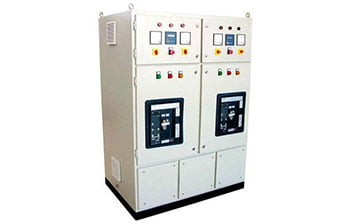
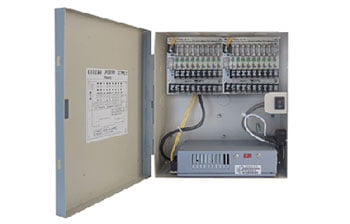
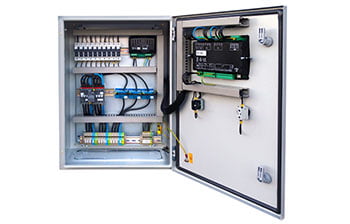
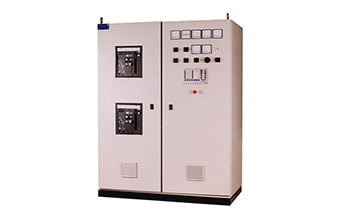










Our team of specialists from varying disciplines will guarantee the provision of integrated solutions to finish your task by drawing on their experience from the collection of our completed projects.
VOLTRONIX
Shed 06, Aber Warehouse
Dubai Investment Park 02,
PO Box: 414345 , Dubai.
United Arab Emirates.
Landline: +971 4 8240002
Mobile: +971 50 2420957
Email: [email protected]